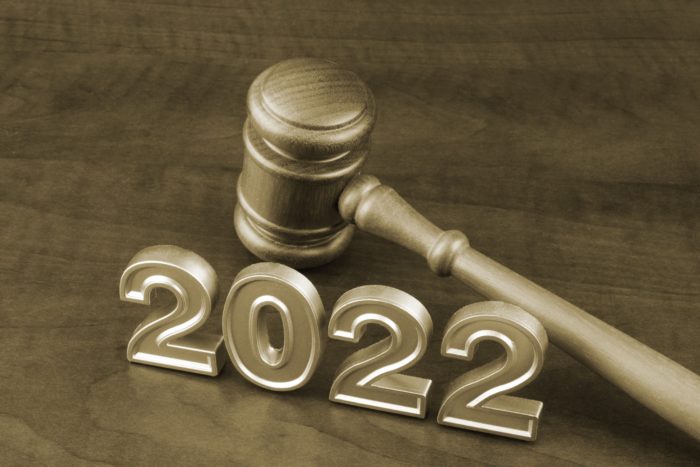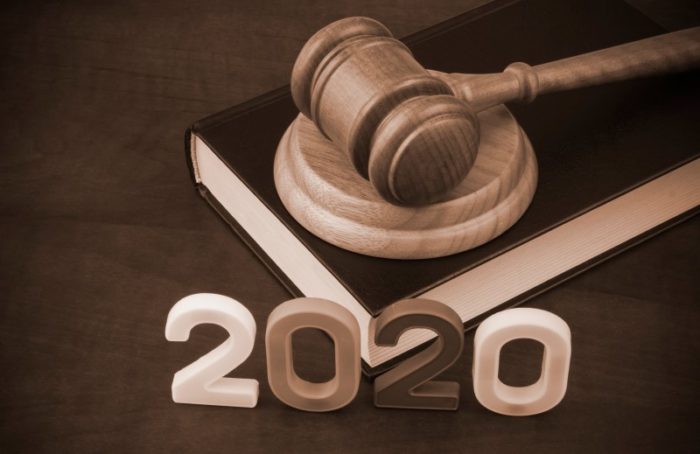
A no-contest provision in a trust (which penalizes a party who contests the validity of that trust), is enforceable against “a direct contest” to the trust that is filed without “probable cause.”[1] What constitutes probable cause in the context of a trust contest? In the case of Meiri v. Shamtoubi[2] the Second District Court of Appeal held a direct contest to a trust lacking probable cause if there’s any legal bar to recovery at the time of filing, whether substantive or procedural. This includes, as was the case in Meiri, filing a trust contest after the close of the 120-day deadline of Probate Code Section 16061.8.
Keep reading to find out more below.
What Is a No-Contest Clause in a Trust in California?
No-contest clauses are generally used to discourage beneficiaries from contesting trusts by providing that anyone who brings a contest to the trust without probable cause forfeits what he or she would have received under the trust or trust amendment.[3] Since the application of a no-contest clause against unsuccessful parties results in forfeiture (i.e., disinheritance), no-contest clauses are strictly construed and limited to only what is plainly required by its terms.
In 2010, the California Legislature repealed or amended much of the existing California no-contest clause Probate Code provisions and put in place replacement statutes as recommended by the California Law Revision Commission.[4] Under the current legal framework, no-contest clauses in estate planning documents that became irrevocable on or after January 1, 2001, are primarily enforceable against direct contests to a trust[5] brought without probable cause.[6]

Meiri v. Shamtoubi: Consequences of Filing an Untimely Petition to Invalidate a Trust in California
In 1994, Tale and Iraj Shamtoubi created a family trust naming themselves as lifetime beneficiaries and their four children as remainder beneficiaries. In 2014, they amended their family trust to reflect gifts and loans made to their children since drafting the original trust. The amendment also included a “no-contest clause” disinheriting any beneficiary who brought a direct contest against the family trust on the grounds of fraud or undue influence. After her husband’s death, Shamtoubi served a Notification by Trustee on Meiri informing her that she had 120 days to bring an action contesting the family trust.
Over 200 days after receiving this statutory notice, Meiri filed a petition seeking to invalidate the 2014 amendment to the trust. Shamtoubi’s counsel attempted to meet and confer on the untimely petition and filed a demurrer when Meiri’s counsel didn’t respond.[7] The trial court sustained the demurrer, without leave to amend, on Meiri’s cause of action seeking to void the trust based on undue influence and fraud, based upon its untimely filing.[8]
After winning on demurrer, Shamtoubi then sought instructions from the trial court that Meiri’s petition violated the trust’s no-contest clause because it was a direct contest brought without probable cause. The trial court agreed, finding that by filing this Petition, Meiri had forfeited her right as a beneficiary under the trust.[9] Meiri then appealed, arguing that (1) her petition wasn’t a direct contest and (2) her procedural failure to file her Petition by the statutory deadline, didn’t constitute a lack of probable cause.
What Constitutes a Direct Contest?
For purposes of a trust contest, a “direct contest” under Probate Code section 21310 is one that alleges invalidity of a trust based on: (1) forgery; (2) lack of due execution; (3) lack of capacity; (4) menace, duress, fraud, or undue influence; (5) revocation of testamentary instrument; or (6) disqualification of a beneficiary.[10]
Meiri conceded on appeal that she failed to file her petition within the 12–day deadline to contest a trust allowed by California law, but argued that it was not a direct contest because it was filed outside the 120-day window, pointing to two cases which preceded the2010 statutory revisions to the Probate Code concerning no contest clauses.[11] The Court quickly dismissed this argument, finding that the 2010 enactment of Probate Code sections 21310 et seq. clearly applied to petitions seeking to invalidate a trust due to undue influence or fraud, such as Meiri’s.[12]
What Constitutes Probable Cause Under Probate Code section 21311?
Prior to the 2010 revision to the Probate Code, the standard for probable cause was similar to that used in malicious prosecution lawsuits.[13] Relying on that standard, Meiri argued that a court must look into the substantive, factual support of a petition such as hers to determine whether probable cause existed at the time of filing.
The Court disagreed, holding that standard to be “too forgiving” in light of the 2010 changes.[14] Indeed, the standard for probable cause within this statutory series is actually discussed directly within the statute itself, which states that probable cause exists under Probate Code section 21310 if, when the direct contest is filed, the facts known to the contestant at the time would cause a “reasonable person to believe that there is a reasonable likelihood that the requested relief will be granted after an opportunity for further investigation or discovery.”[15]
By creating a separate statutory definition of probable cause in section 21311, the Legislature had “explicitly rejected” the California malicious prosecution standard in favor of the stricter standard encompassing both substantive and procedural bars to relief (e.g., filing after the 120 deadline).[16] Weighing the competing public policy interests of honoring the intent of the testator and discouraging litigation, against avoiding forfeitures, the Court found the 2010 changes to the Probate Code struck a new standard whereby “any legally sufficient bar to relief – whether procedural (e.g., a statute of limitations defect) or substantive – appears to satisfy section 21311, subdivision (b)’s test.”[17] By failing to file before the 120-day deadline, Meiri’s petition therefore lacked probable cause.

Key Takeaways: Pay Attention to Probate Code Section 16061.7 When Seeking to Invalidate a Trust With a No-Contest Clause
It should come as no surprise that practitioners need to be diligent not to file a trust contest after the 120-day window under California Probate Code section 16061.7. And while Meiri does leave open the possibility that probable cause may exist when a petitioner has a good excuse for such an untimely petition,[18] doesn’t leave any room for probable cause to be found without such an excuse.[19] In light of the serious potential consequences of failing to file a trust contest before the 120-day window elapses, it’s imperative that beneficiaries who believe a trust is the result of fraud, lack of capacity, or undue influence, seek out a trust and estate lawyer who specializes in this practice area as soon as receiving a Notification by Trustee.
Seeking to defend or contest a trust with a no-contest clause? We are standing by to help.
The probate attorneys at Keystone have ample experience defending and contesting trusts with no-contest clauses. While it would be ideal for you to get in touch with us within the 120 days for contesting a trust that California law allows, we may be able to assist even if your case falls outside that window. Call us today to request a free consultation.
Sources
[1] Prob. C. § 21311(a)(1).
[2] Meiri v. Shamtoubi (2022) 81 Cal.App.5th 606.
[3] See Prob. C. § 21310(c).
[4] Stats.2008, c. 174 (S.B.1264), § 1-2, operative Jan. 1, 2010.
[5] No contest clauses are also enforceable against certain pleadings to challenge transfers of property and creditor’s claims. See Prob. C. § 21311(a)(2) and (3).
[6] In addition, a no contest clause can be enforceable against (1) a challenge to the transfer of property on the basis that it was not the transferor’s property at the time of the transfer, or (2) the filing of a creditor’s claim, so long as such provisions are expressly mentioned in the no contest clause itself.
[7] In addition to failing to meet and confer, Meiri’s counsel also failed to appear at the initial hearing on the petition, or at the subsequently scheduled hearing. 81 Cal.App.5th at 611.
[8] Id. at 612.
[9] Id.
[10] Prob. C. § 21310(b).
[11] Those cases – Estate of Lewy (1974) 39 Cal.App.3d 729 and Estate of Crisler (1950) 97 Cal.App.2d 198 – involved an action analogous to offering a purported later will and a motion to dismiss probate proceedings for lack of jurisdiction, respectively.
[12] 81 Cal.App.5th at 615.
[13] See e.g., Estate of Gonzalez (2002) 102 Cal.App.4th 1296, 1304.
[14] 81 Cal.App.5th at 618 (citing the California Law Revision Commission, Recommendation: Revision of No Contest Clause Statute (Jan. 2008) 37 Cal. Law Revision Com. Rep. (2007) p. 398).
[15] Prob. C. § 21311(b).
[16] Id. at 619.
[17] Id. at 617.
[18] In footnote 8, the Meiri court raises the doctrine of Equitable Tolling and points to the line of cases surveyed in Germino v. Hillyer (2003) 107 Cal.App.4th 951, 956, 132 Cal.Rptr.2d 478, as potential relief from missing the 120-day deadline.
[19] In footnote 8, the Meiri court raises the doctrine of Equitable Tolling and points to the line of cases surveyed in Germino v. Hillyer (2003) 107 Cal.App.4th 951, 956, as potential relief from missing the 120-day deadline.




